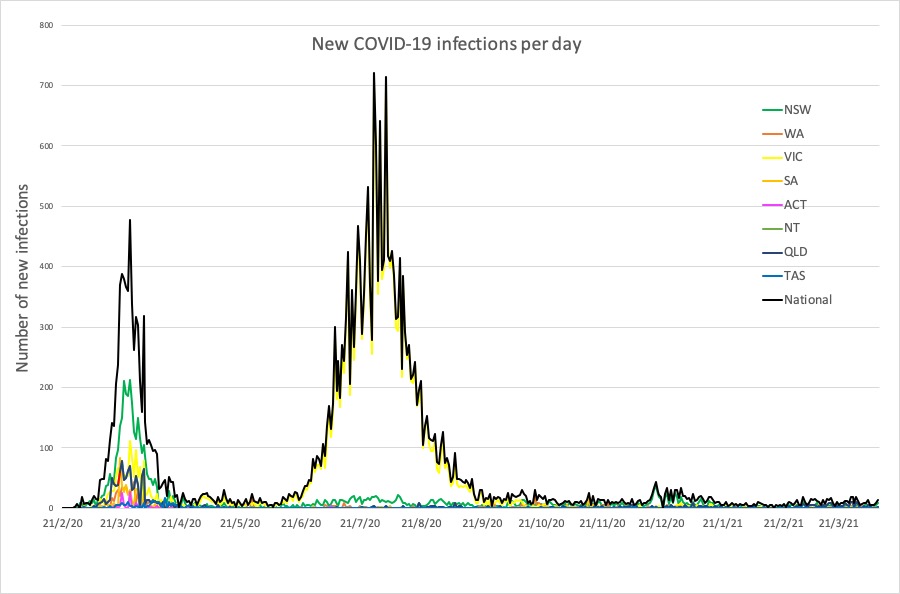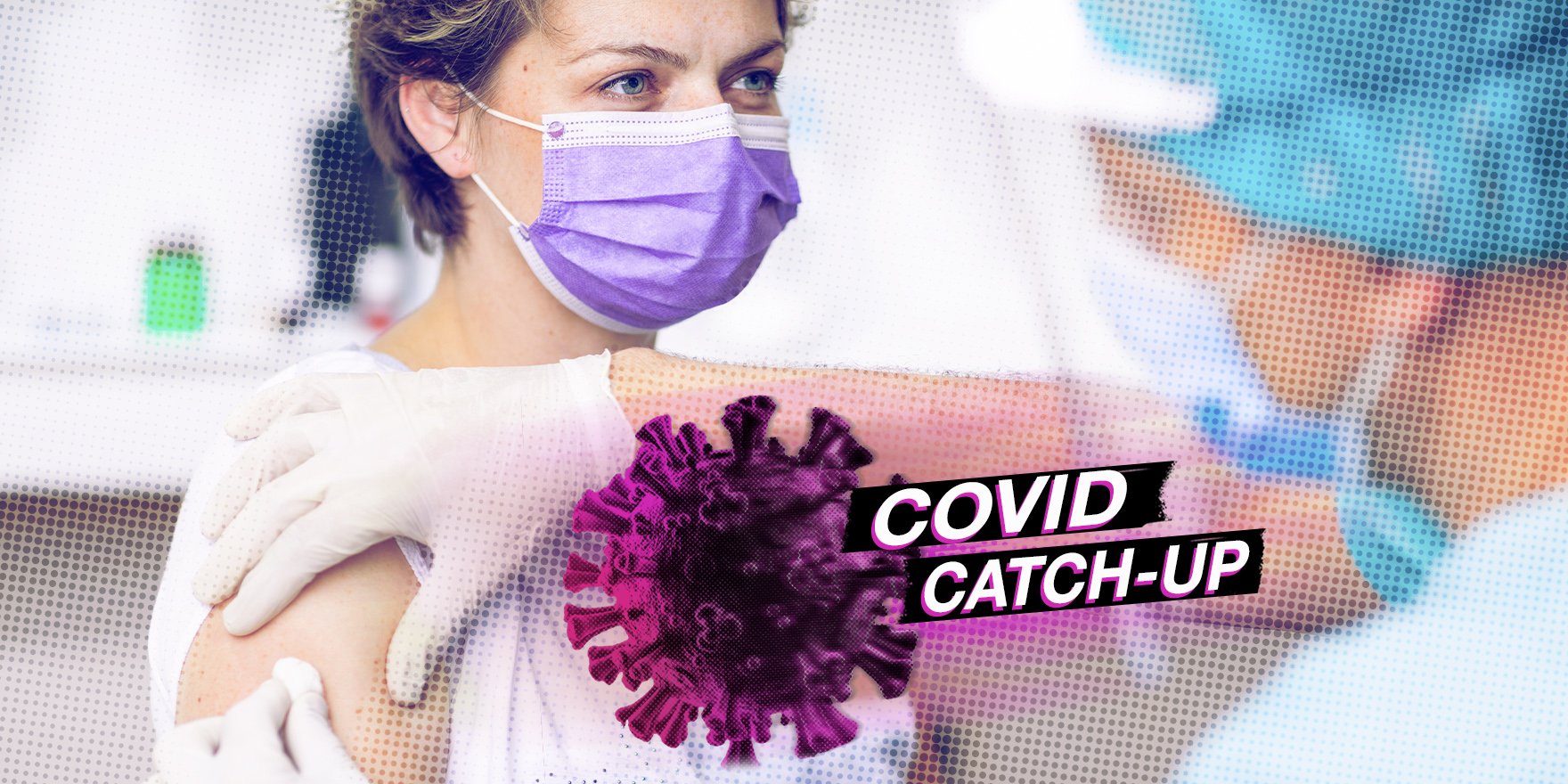And Queensland is to raise the cap on international travellers amid concerns of rising cases in PNG.
Welcome to The Medical Republic’s COVID Catch-Up.
It’s the day’s COVID-19 news in one convenient post. Email bianca@biancanogrady.com with any tips, comments or feedback.
13 April
- Second case of thrombosis with thrombocytopenia linked to AZ vaccine in Australia.
- QLD to raise number of international travellers arriving in the state.
- Vaccine-derived SARS-CoV-2 antibodies transfer through breast-milk.
- UK variant linked to higher viral load but not more severe disease or risk of death.
- Latest COVID-19 infection numbers from around Australia to 9pm Monday.
A second case of thrombosis with thrombocytopenia after receiving the AstraZeneca COVID-19 vaccine has been reported in Australia, this one in a woman in her forties.
According to a statement from the Therapeutic Goods Administration, the case is considered likely to be linked to the vaccination. The woman is in a stable condition in hospital.
The TGA stressed that there have only been two cases of this rare clotting disorder in Australia and around 700,000 doses of the AstraZeneca vaccine have been administered, translating to a frequency of around 1 in 350,000 – less than the 1 in 250,000 risk reported by the UK medicines regulatory agency.
However, anyone who develops symptoms within a few days of vaccination, such as severe or persistent headache or blurred vision, shortness of breath, chest pain, persistent abdominal pain, leg swelling, unusual skin bruising or pinpoint round spots beyond the site of injection should immediately seek medical attention.
Meanwhile, the Guardian reports that the federal government will not be securing any of the Johnson & Johnson single-dose COVID-19 vaccine, because it is based on the same technology as the AstraZeneca vaccine.
A spokesperson for Federal Health Minister Greg Hunt told the Guardian that the government would not be purchasing any more adenovirus vaccines.
Queensland will lift its temporary cap on the number of international travellers allowed into the state tonight, which is expected to lead to an increase in flights from Papua New Guinea and more cases from the COVID-19-stricken nation.
According to In Queensland, the state government had previously asked the federal government to temporarily reduce the number of travellers coming to the state while it grappled with a high number of infected travellers being treated in its hospitals, and with a brief outbreak.
However from midnight tonight, the number of travellers allowed into the state will return to 1000 per week.
The state recorded another death from COVID-19 in an 80-year-old Australian man who had returned from the Philippines via Papua New Guinea, and tested positive on day five of hotel quarantine.
Vaccine-derived SARS-CoV-2 antibodies are secreted in breast milk for six weeks after vaccination, but do not appear to have any adverse effects on breast-feeding infants, a study has found.
Writing in JAMA, researcher report the findings of their analysis of just over 500 breast milk samples provided by 84 women who had received two doses of the Pfizer/BioNTech COVID-19 vaccine.
They found that levels of anti-SARS-CoV-2 IgA antibodies increased rapidly to two weeks after the first vaccine dose, and by week four, 86% of the breast milk samples tested positive for antibodies. Levels of IgG antibodies were low for the first three weeks, then increased, and by week six, 97% of samples tested positive.
“Antibodies found in breast milk of these women showed strong neutralizing effects, suggesting a potential protective effect against infection in the infant,” the authors wrote.
There were no serious adverse events during the study, and of the four infants who developed fever during the study period, all had symptoms of upper respiratory tract infections.
A study of the UK variant has found a higher viral load in patients infected with the variant compared to those with the original strain, but no evidence of more severe disease or increased risk of death.
A paper published in The Lancet Infectious Diseases reported the study of 341 individuals who tested positive for SARS-CoV-2 and whose viral samples were sequenced; 58% of them had the B.1.1.7 variant, the UK variant of concern.
The study found no significant difference in the incidence of severe disease or death between the UK variant and non-UK-variant groups, even after adjusting for potential confounders such as the age and ethnicity of participants.
However researchers did find evidence that those infected with the UK variant had significantly higher viral loads.
Here are the latest COVID-19 infection numbers from around Australia to 9pm Monday:
National – 29,419 with 909 deaths
ACT – 123 (0)
NSW – 5339 (9)
NT – 112 (0)
QLD – 1504 (1)
SA – 666 (0)
TAS – 234 (0)
VIC – 20,487 (2)
WA – 954 (1)



